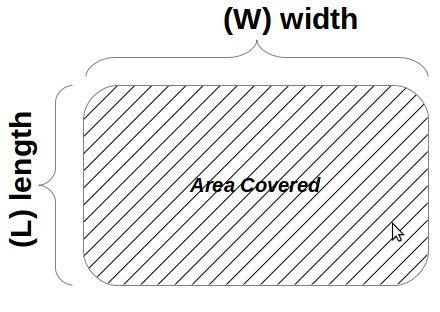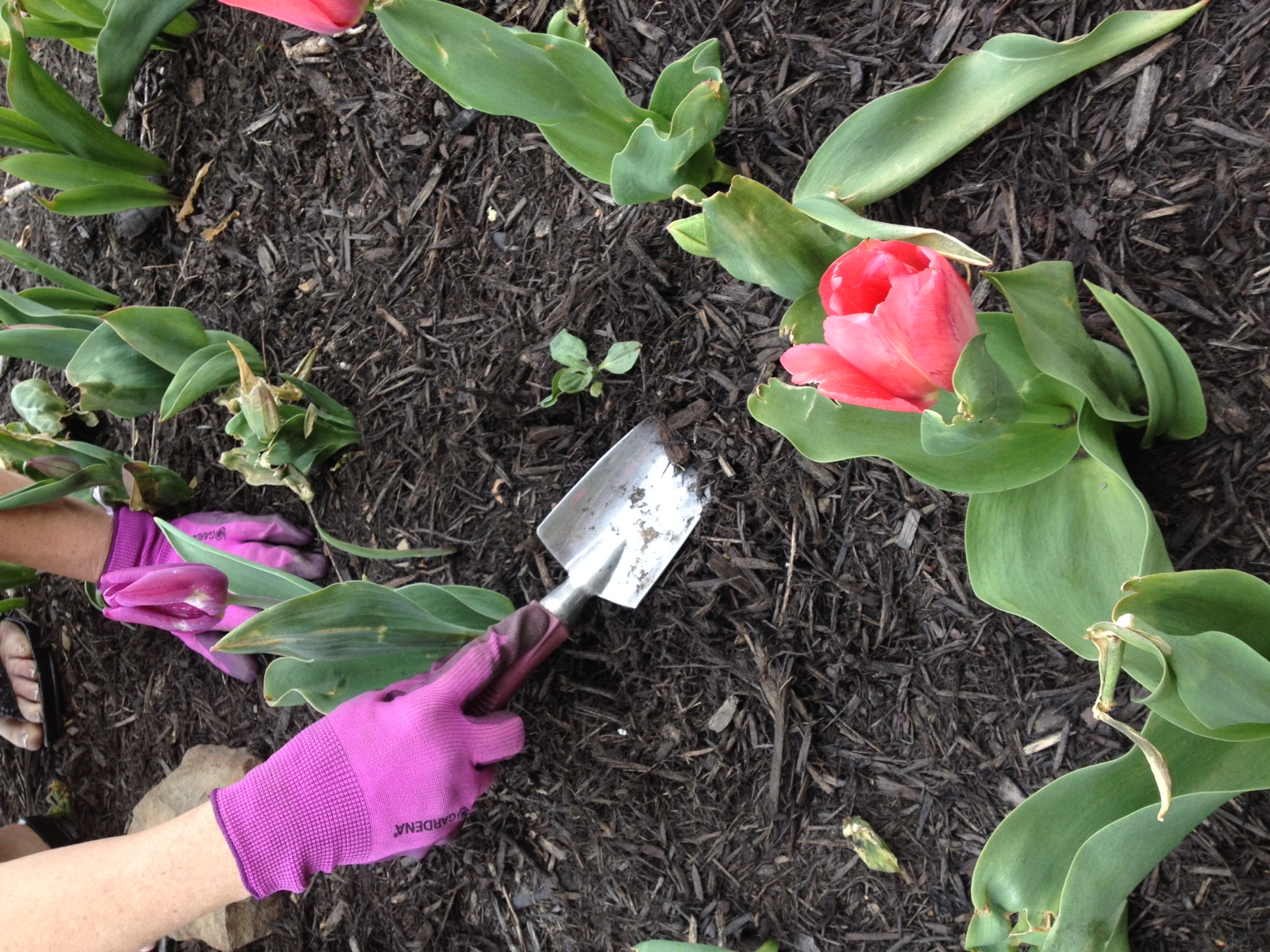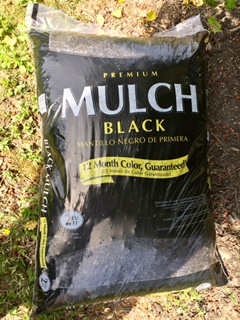The Bales of Straw Needed for Mulching calculators computes the number of regular square-bales of straw or hay needed to cover an area such as a field, garden or planter deep enough to act as mulch. To compute the bales of straw to mulch an irregular shaped field, plot, garden or planter, CLICK HERE.
regular square-bales of straw or hay needed to cover an area such as a field, garden or planter deep enough to act as mulch. To compute the bales of straw to mulch an irregular shaped field, plot, garden or planter, CLICK HERE.
INSTRUCTIONS: Choose units and enter the following:
- (A) Area Covered in Straw
- (pB) Price per Bail (default is the most recent vCalc survey for straw pricing)
Bales of Straw for Mulching (B): The calculator returns the number of small (2 string) bales of straw needed to cover the area. It also computes the estimated cost of the straw base on a in input price per bail.
Considerations
Mulching is different than ground cover for planting. For mulching, one wants to suppress the growth of grass and weeds. For ground cover, one wants to protect grass seed and young seedlings to encourage grass growth and moisture retention. The differences is in the depth of the straw laid. This calculator computes straw deep enough to suppress weed growth.
Mulching Calculators
- Mulch to Cover Area: Enter an area size (e.g. 45 square feet or 0.75 acres) and depth of mulch wanted, and see estimated amount of mulch needed. Use the Size of Land Calculator if your area is unknown.
- Mulch to Cover Circular Area: Enter the diameter (D) of the circle and depth of mulch wanted, and see estimated amount of mulch needed.
- Mulch to Cover Rectangular Area: Enter the length (L) and width (W) of the area and depth of mulch wanted, and see estimated amount of mulch needed.
- Mulch to Cover Four Sided (not squared) Area: Enter the length of the four sides (a,b,c,d) and the diagonal (D) of an irregular area (see diagram) and the depth of mulch wanted, and see estimated amount of mulch needed.
- Mulch Cost Estimate: Enter the amount of mulch needed, choose a type of mulch and it will provide an estimate of the cost.
- Mulching With Straw (Irregular Area): Enter the length (L) and width (W) of the rectangular area and it will estimate the number of bales of straw needed to mulch the area with straw.
- Mulching With Straw (Area): Enter the area (acres, square feet) to see an estimate of the number of bales of straw needed to mulch the area with straw.
- Bulk vs Bag Price Comparison: Enter the bulk mulch and bag prices and volumes, and it tells you which is cheaper and by how much.
- Bulk Mulch Coverage: Estimates the area that can be covered by a volume (e.g., garden center scoop) of bulk mulch based on the number of units (bulk scoops), size of units (cubic yards) and the depth the mulch will be spread.
If mulch is not the best application, consider using Landscape Fabric and the Landscape Fabric Calculator.
Mulch Information
Mulch is an excellent way to help your garden, plants, shrubs or trees in your yard. Mulch slows the growth of weeds, while allowing water and air to get to your plants; it also provides a pleasing visual boundary to highlight your plants.
is an excellent way to help your garden, plants, shrubs or trees in your yard. Mulch slows the growth of weeds, while allowing water and air to get to your plants; it also provides a pleasing visual boundary to highlight your plants.
Mulch is a layer of material applied to the surface of the soil to conserve moisture, improve fertility and health of the soil, reduce weed growth, and enhance the visual appeal of the area. It can be made from a variety of organic and inorganic materials.
Types of Mulch
- Organic Mulch:
- Wood chips: Made from tree branches and trunks, wood chips decompose slowly and are often used in landscaping.
- Bark: Shredded or chipped bark from trees, typically used around plants and trees.
- Straw: Lightweight and easy to spread, commonly used in vegetable gardens.
- Grass clippings: A good source of nitrogen, but should be used in thin layers to avoid matting.
- Leaf mold: Decomposed leaves, great for improving soil structure.
- Compost: Decomposed organic matter, excellent for enriching the soil.
- Inorganic Mulch:
- Plastic sheeting: Used to warm the soil and retain moisture, but doesn't decompose.

- Landscape fabric: Allows water and air to pass through while blocking weeds.
- Gravel and stones: Good for decorative purposes and in areas with heavy foot traffic.
- Plastic sheeting: Used to warm the soil and retain moisture, but doesn't decompose.
Benefits of Mulch
- Moisture Retention: Mulch helps soil retain water by reducing evaporation.
- Temperature Regulation: It keeps the soil cooler in the summer and warmer in the winter.
- Weed Suppression: A thick layer of mulch blocks sunlight, reducing the germination of weed seeds.
- Soil Improvement: Organic mulch breaks down over time, adding nutrients to the soil.
- Erosion Control: It helps to protect the soil from erosion caused by wind and water.
- Aesthetic Appeal: Mulch can enhance the appearance of a garden or landscape.
Application Tips
- Thickness: Apply mulch to a depth of 1" to 2" of fine mulch or 3" to 4" of course mulch. Thicker layers can suffocate plant roots and prevent water from reaching the soil.
- Distance from Plants:
Keep mulch a few inches away from the stems of plants and trees to prevent rot and pest infestations.
- Replenishment: Organic mulch decomposes over time and should be replenished periodically to maintain its effectiveness.
Using mulch is a common and beneficial practice in gardening and landscaping, contributing to healthier plants and a more attractive outdoor space.
To help you know how much mulch you need for a job, the Mulch Calculator helps calculate the volume of mulch needed. The Mulch Calculator uses both use the dimensions of the area to be covered and the desired depth of mulch in order to calculate the volume. The volume is returned in cubic units (system units such as cubic feet) or in standard bags. Bags of mulch in the U.S. typically come in units of 2 cubic feet. For more information, see the Mulch to Block Weeds blog.
- Straw Pricing by Bale Size: [[Date of Pricing Survey, 7/17/24], [Straw Price: Small Square Bale (2 string: 50lb), 3.69 USD], [Straw Price: Small Square Bale (3 wire: 110lb) , 8.11 USD], [Straw Price: Large Square Bale (1,360 lbs), 100.30 USD], [Straw Price: Round Bale (850 lbs), 62.69 USD]]
The most current US Straw Price Survey information data is as follows:
- Date: 7/17/24
- State: PA
- Region: New Holland
- Straw Price: $130.0 to $165.0
See Also
- Greenhouse Calculator - Formulas and data for construction, heating and planting in a greenhouse or high-tunnel.
- Planter Calculator - Formulas for gardening with planters.
- Fencing Calculator - Formulas for farm fencing
- Electricians Calculator - Formulas for electrical wiring.
- Plumbers Calculator - Formulas for plumbing.
- Pole-barn and Shed Calculator - Formulas to assist in construction of a pole-barn, house or shed.
